Guest columnist Tim Walter: The nuclear Test Ban Treaty, JFK, and my dad
| Published: 09-22-2023 3:02 PM |
My dad, Paul Walter, grew up on the lower west side — the poor part — of Cleveland, Ohio. His mother was “a wet Democrat,” his father “a dry Republican.” He worked his way through college and law school. In the 1930s in the midst of the Depression, the Cleveland municipal light plant retained him to help it take over the private utility. It lost in the City Council by one vote, but afterward he became known as the “socialist Republican.”
When Robert Taft, the son of President William Howard Taft, ran for U.S. Senate, he asked Dad to be his northeast Ohio campaign manager. Dad said OK, but if you’re elected, the southern Ohio conservatives will want you to kick me off the general election campaign. Taft won the primary and kept Dad on the campaign. That bonded their relationship for life.
After Sen. Taft died in 1953, one of Dad’s clients who headed the company that made the keys for General Motors, told my father about the United World Federalists (UWF), whose motto was “World Peace through World Law.” Dad went on to be the local president of the UWF and then the national president in the early 1960s, roughly coinciding with President John F. Kennedy’s administration.
When my father went to Washington, he found that there were many congresspeople who had campaigned on cutting the military budget, but after they were elected, the Pentagon would show them computer printouts of their districts with all the military contracts in them, and all the union jobs and campaign donations tied to those contracts. Suddenly the congresspeople were no longer for cutting the military budget.
Nonetheless, Dad lobbied to get the U.S. to back a $100 million United Nations bond issue (the U.N. was nearly broke), establish the Arms Control and Disarmament Agency, and helped establish the Members of Congress for Peace Through Law.
Then in 1963, President Kennedy negotiated a Partial Test Ban Treaty (PTBT) with the Soviet Union that prohibited testing of nuclear weapons underwater, in space, and most important, in the atmosphere.
But Kennedy needed help to get the U.S. Senate to ratify the PTBT. So he called Norman Cousins, who was editor of The Saturday Review and a leading World Federalist, and my Dad to the Oval Office.
First Dad told Kennedy how Taft Republicans had helped JFK defeat Sen. Henry Cabot Lodge Jr. in the 1952 Massachusetts U.S. Senate race because the Taft people considered Sen. Lodge to be a hatchet man for the Eisenhower forces.
Article continues after...
Yesterday's Most Read Articles
 More than 130 arrested at pro-Palestinian protest at UMass
More than 130 arrested at pro-Palestinian protest at UMass
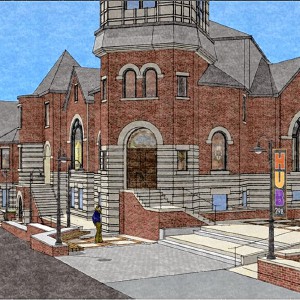 Public gets a look at progress on Northampton Resilience Hub
Public gets a look at progress on Northampton Resilience Hub
 Northampton bans auto dealerships near downtown; zone change won’t affect Volvo operation on King Street
Northampton bans auto dealerships near downtown; zone change won’t affect Volvo operation on King Street
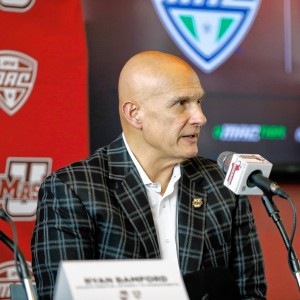 UMass basketball: Bryant forward Daniel Rivera to be Minutemen’s first transfer of the offseason
UMass basketball: Bryant forward Daniel Rivera to be Minutemen’s first transfer of the offseason
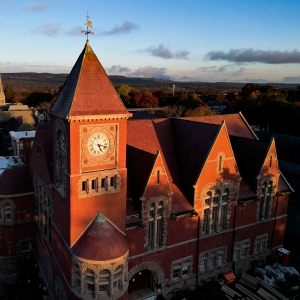 Town manager’s plan shorts Amherst Regional Schools’ budget
Town manager’s plan shorts Amherst Regional Schools’ budget
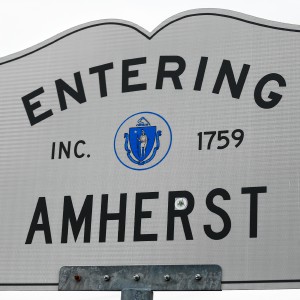 Police respond to alcohol-fueled incidents in Amherst
Police respond to alcohol-fueled incidents in Amherst
Then JFK pointed to a corner of his desk and said there are 100 letters opposing the test ban, all sent by a little old lady in Seattle who goes through the phone book and copies names. He then assigned Norman Cousins the task of getting 1 million letters to senators in support of the treaty. He told my dad to take charge of the Republicans in the Senate, and he would take care of the Democrats.
So my father went to see Sen. Everett Dirksen of Illinois, then minority leader of the Senate. Dad had access to Sen. Dirksen because Dirksen had made the nominating speech for Sen. Taft at the 1952 Republican National Convention, where my dad had been Taft’s floor manager.
Dad explained to Sen. Dirksen how atmospheric tests spewed radioactive strontium-90 into the air. Rainfall dropped the strontium onto grass, where cows ate it, and it got into their milk. Children drank the milk, and the strontium-90 concentrated in their bones. The chain of causality was clear because strontium-90 is radioactive.
Sen. Dirksen listened, and in his long drawl, replied, “Well, Paul, I’ve got grandchildren, too, but I’ve got Goldwater [of Arizona] to the right of me, and Javits [of New York] to the left, but with a little oil here and a little oil there, we may get it ratified. I’ll call Mr. President when I’ve got the votes.”
On Sept. 23, the Senate voted 80-19 to ratify the Partial Test Ban Treaty, with 26 Republicans joining 54 Democrats in favor while 8 Republicans and 11 Democrats opposed it.
After the Senate ratified the treaty, Dad and some other World Federalists returned to Sen. Dirksen’s office and presented him with a commemorative plaque with an oil can on it.
The PTBT went into effect on Oct. 10, 1963; Kennedy was assassinated the next month. However, to this day neither the former Soviet Union nor the U.S. has conducted a nuclear weapons test underwater, in space, or in the atmosphere.
Tim Walter of Plainfield taught English at Berkshire Community College. He’s retired and lives in Plainfield. He thanks U.S. Rep. Richard Neal’s office for help in researching this column.

 Guest columnist Phil Wilson: Let us pick local town officials by sortition
Guest columnist Phil Wilson: Let us pick local town officials by sortition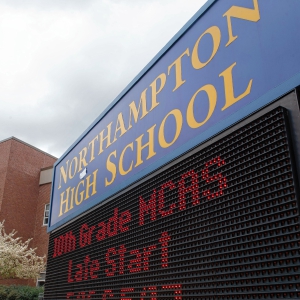 Karen Foster Cannon: Michael Stein does not speak for me
Karen Foster Cannon: Michael Stein does not speak for me Joseph Morse: So much to be thankful for
Joseph Morse: So much to be thankful for Letter: It's not Us vs Them
Letter: It's not Us vs Them
